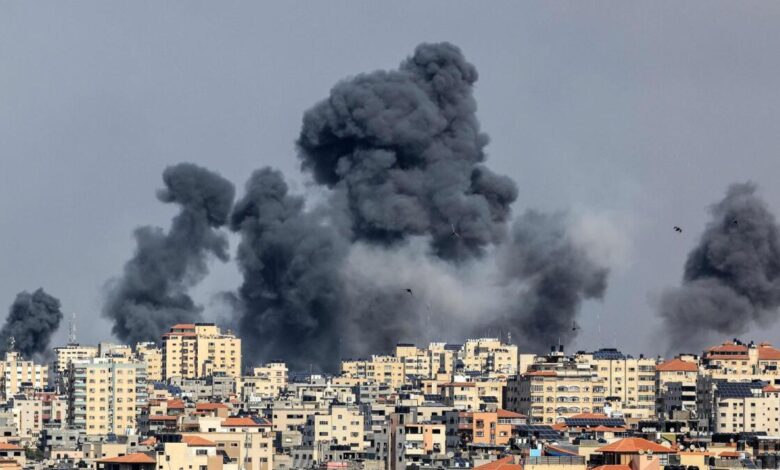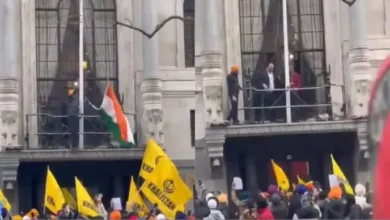Overview of the Israel-Palestine Conflict | State of War
There had been approx 700 Israeli fatalities and 2,156 injuries. On the Palestinian side, there have been approximately 424 fatalities, 2,392 injuries, and 74,000 displaced people.

The Israeli-Palestinian conflict began in the late 19th and early 20th centuries with the emergence of significant nationalism movements among Jews and Arabs, both of which aimed to establish sovereignty for their respective peoples in the Middle East. The British government publicly endorsed the creation of a “national home for the Jewish people” in Palestine in 1917, during the First World War, in the Balfour Declaration. Following the outbreak of Palestinian nationalism following the Franco-Syrian War in the 1920s, the clash between the two groups in southern Levant intensified into the sectarian struggle in Mandatory Palestine in the 1930s and 1940s, which eventually broadened into the larger Arab-Israeli conflict.
Current situation
In the Gaza Conflict of October 2023, Palestinian militant groups under the leadership of Hamas launched a massive invasion against Israel from the Gaza Strip on October 7, 2023, breaching the Gaza-Israeli border fence and breaking through to nearby settlements and military installations. ‘Operation al-Aqsa Storm’ was what Hamas named it.
Significant casualties have been sustained by both sides of the fight. On October 9, 2023, there had been approximately 700 Israeli fatalities and 2,156 injuries. On the Palestinian side, there have been approximately 424 fatalities, 2,392 injuries, and 74,000 displaced persons.
While Hamas militants fired rockets into Israel, the Air Force conducted airstrikes on Hamas positions in Gaza. A bigger battle has been feared as a result of the violence, which has forced thousands of people to flee on both sides of the border.
More than 24 hours after the initial shocking Hamas strike, battle between Israel and Palestine raged in 7-8 locations close to Gaza, according to a spokesperson for the Israeli military on Monday. Over 130 Israelis, including soldiers and civilians, were reportedly kidnapped as captives and transported into the adjoining Gaza Strip. Thousands of people were hurt in the attacks, including an Indian woman whose family claimed she was on a video conversation with her husband at the time.
According to a report from the head of the Israel Defence Forces, “almost 48 hours into the fighting… the situation in Israel is a dire one” and that the nation is conducting a big attack against Gaza, which will likely result in the destruction of many buildings thought to be affiliated with Hamas.
Hamas attack at a music festival close to the Gaza-Israel border
The outdoor Tribe of Nova music event was intended to be an all-night dance party where thousands of young people could celebrate the Jewish holiday of Sukkot. It was to be held in a rural region close to the Gaza-Israel border.
But early on Saturday, Hamas militants assaulted the celebration in the desert region, leaving an estimated 260 people dead. The situation quickly turned into deadly mishap. According to reports from news organisations, social media, and an Israeli rescue organisation, terrified revellers attempted to flee and shelter from the shooting.
About 260 bodies have been recovered from the music festival, according to the rescue service Zaka, with more bodies likely to be found as teams continue to sweep the area.
Israel launches repeated midnight attacks on Gaza
The Israeli military claimed on Monday that it had attacked hundreds of Hamas and Islamic Jihad targets in the Gaza Strip over the course of the previous night and had dispatched four combat divisions south, where it had continued to fight jihadist insurgents two days after a violent incursion.
Over 500 Hamas and Islamic Jihad locations in the Gaza Strip were hit by fighter jets, helicopters, and artillery overnight. These targets included Hamas and Islamic Jihad command facilities and the home of top Hamas leader Ruhi Mashtaa, who is suspected of aiding in the infiltration into Israel, as reported by Reuters.
War’s impact on India
Global markets have also been affected by the turmoil. Zee Business reported that the incident had an impact on Indian markets, with the S&P BSE Sensex falling as much as 561 points.
According to Dr. V K Vijayakumar, chief investment strategist at Geojit Financial Services, “The Israel-Hamas conflict has introduced huge uncertainty for the markets. Nobody knows how this war is going to evolve. From a market perspective, it is important to understand that even though the death and destruction are tragic, they are unlikely to cause major disruptions in oil supplies, thereby impacting major oil importers like India. But the situation will change if Iran, a major Hamas supporter, is drawn into the war. That can disrupt oil supplies, causing a spike in crude, which can trigger a risk-off in the market.”
“This is a time to be cautious. Investors may refrain from taking big risks. Wait for the developments to unfold. Long-term investors can slowly accumulate high-quality stocks on declines,” Dr V K Vijayakumar continued.
AMU Students gather to support Hamas
India has harshly denounced the barbaric assault on Israel by Hamas militants. Prime Minister Narendra Modi expressed dismay over the Hamas militants’ attack on Israel. In addition, the PM reaffirmed India’s unwavering support for Israel in the wake of the country’s attacks. However, the AMU students turned out in solidarity of Hamas-Palestinian terrorists and yelled “Allahu Akbar” and “We Stand With Palestine” during their demonstration.
According to Israel’s consul general Kobbi Shoshani, India’s position on the current events in Israel is “significantly important in the global war against terrorism.”
“Prime Minister Modi is a global leader and is very important to us as a state, as a friend, and as a brother…The situation of attacking the sovereignty of the state of Israel is not acceptable…,” he stated.
Prime Minister Narendra Modi expressed shock at what he called “terrorist attacks” and conveyed “solidarity with Israel” as the militant organisation Hamas, which controls the Gaza Strip, launched one of the most audacious attacks on Israel — many have called it the worst inside the territory of the Jewish state since its establishment in 1948.
The Prime Minister’s remarks have been interpreted as supporting Israel even though the Ministry of External Affairs has not yet released an official statement.
Fears of an escalated war have increased the price of oil
Oil prices climbed on Monday as a result of the Israel-Palestine crisis as markets factored in concerns about a wider Middle East conflict.
Brent crude increased $4.18, or 4.94%, to $88.76 a barrel by 0120 GMT in Asian trade as a result of the violence fueling market volatility and worries about potential Iranian supply interruptions. Oil prices would be taxed by consumers if they rose steadily, adding to the pressures of global inflation, which weighed on stocks. S&P 500 futures fell by 0.7%, and Nasdaq futures fell by 0.6%.
The US and other countries’ reaction
In order to be prepared to help Israel, Defence Secretary Lloyd Austin gave the order for the Ford carrier strike group to head to the Eastern Mediterranean. The deployment, which also includes numerous ships and aeroplanes, highlights the United States’ anxiety over trying to prevent the crisis from escalating.
According to early reports, the strikes claimed the lives of at least four US nationals, while seven others were listed as missing, a US official said. The UN Security Council convened an emergency session to discuss the crisis, but it did not move right away when the US demanded that its 15 members denounce the Hamas attack.
The UN envoy for Russia told The Associated Press that the parties need to restart their long-stalled negotiations. The envoy of China stressed the importance of returning to a two-state solution in which Israel and Palestine coexist.
However, according to US Deputy Ambassador Robert Wood, the current violence must be addressed first. The minister of development for Germany announced that her nation would reevaluate its help to the Palestinian Territories.
Senior authorities in Iran, a longtime backer of Hamas and other extremist organisations, applauded the invasion. Ismail Haniyeh, the head of Hamas, and Ziad al-Nakhalah, the head of Islamic Jihad, spoke on the phone with President Ebrahim Raisi, the state-run IRNA news agency said on Sunday.
Egypt discussed a potential cease-fire with both sides, but an Egyptian official claimed that Israel was not open to a truce “at this stage”.
At least two Israeli tourists and one Egyptian were killed when an Egyptian policeman opened fire on them on Sunday in Alexandria, according to the authorities. The bombing may have been tied to fights between Israeli and Palestinian terrorists, the US embassy in Cairo advised Americans there to take care.
You might also have a look in : FM Israel reveals six or seven Muslim countries to recognise Israel soon, Pak FM denies



